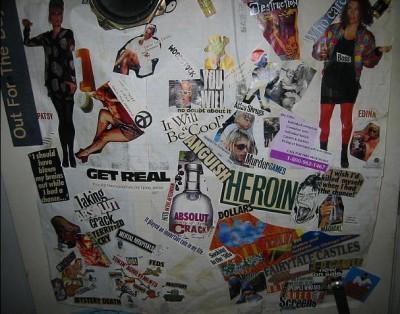Behind the glamour of celebrity life is inevitable tragedy. This is especially true when it comes to drug abuse and addiction. Miley Cyrus sang about “dancing with Molly,” or MDMA, a popular party drug. She also referenced people doing “lines” in the bathroom.
Within weeks of the release of Cyrus’s anthem for partying while intoxicated and high, “Glee” actor Cory Monteith died after overdosing on a combination of heroine and alcohol. Talented singer Amy Winehouse’s battles with addiction were well publicized and also appeared in her music. Unfortunately, substance abuse took its toll on her health and cost Winehouse her life.

Compliments of Flickr
Teens often turn to celebrities, musicians especially, for social guidance on what’s cool and what isn’t or how best to rebel or stand out. Drug and alcohol abuse are generally treated as the best way to express how rebellious and “cool” one is in society and in Hollywood celebrity culture. There are very important reasons why it’s important to talk to teens and help them understand why rampant drug abuse is nothing to celebrate or emulate.
When “Cool” Becomes Irrelevant
In the beginning, teens take on drugs or alcohol to fit in or feel grown up. It starts out with the intent of being more superficially inclined (“I want these people to like me”) than genuinely needing to take drugs or binge drink to support a habit. As time passes and the substance dependency grows stronger, the need for a fix becomes far more relevant than what anyone else thinks.
Addiction is not romantic or cool, and these are the thoughts one is only ever really able to have if they’ve never struggled with addiction or when one has not yet reached a stage of addiction.
If teenagers want to emulate behavior that is cool, perhaps it’s best to emphasize finding a style that makes them unique — clothing, hairstyle, etc. — or finding their own voice through music, poetry or acting. They should understand that turning to substance abuse to make themselves look cool or rebellious will ultimately go beyond this into a territory where they can look like someone they won’t even recognize.
The Myth Of Invincible Youth
When one is young and famous and there is a lot of money available, they may think they can do or have anything and that there will be no negative consequences. This is true for no one, no matter how youthful, no matter how famous, and no matter how rich.
Many people who are young do things and expect the consequences won’t matter or won’t happen because of a sense of “invincibility” that often comes with being young and taking life for granted. Teens will take their cues from famous people who are their ages or aren’t much older and operating with the same naïve sentiment.
Unfortunately, that naivety can negatively affect an individual’s health. It could even cost them their life. Molly or MDMA negatively affects the brain, and the street drug is often mixed with lethal substances. In fact, ongoing addiction can shatter not only the myth of the invincibility of youth … it also could shatter the young individuals themselves.
Getting Teens To Take A Step Back From Emulating Drug Abuse
It’s necessary to stress the importance of an open and honest dialog about drugs. There are often two extremes when it comes to drug abuse: The stigma against those addicted to drugs or the worship and “coolness” of drug abuse. Neither of these stereotypical points of view are grounded in unbiased reality or of any real help.
If you suspect your teen is abusing drugs, it’s necessary to take immediate steps to intervene, but it’s best not to stage an intervention without the help of a professional. If you suspect a teen peer or family member may be abusing drugs, seek the help and advice of a trusted adult.
Feature Image courtesy of ddpavumba / FreeDigitalPhotos.net

